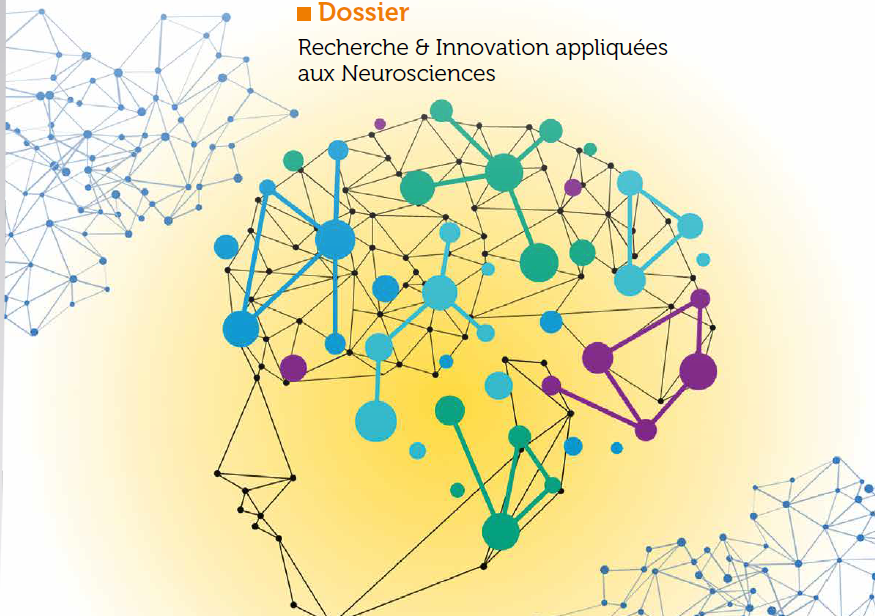Anxiolytics and antidepressants
are commonly used to treat stress and anxiety in patients. However, they have frequent side-effects, such as memory loss, drowsiness, fatigue, dizziness, coordination problems and blurred vision. What's more, prolonged use can lead to drug dependence. To better help your patients, it's essential to consider other therapeutic approaches that can help reduce their use.
The effectiveness of anxiolytics and antidepressants: anxiolytics act chemically on GABA and serotonin receptors and can be addictive. The overall duration of treatment should not exceed 3 months, according to Vidal, including gradual weaning to avoid complications. Yet, unfortunately, many patients find themselves dependent on these drugs, and frequently seek solutions to try and do without them.
Similarly, antidepressants, often presented as "happy pills", are widely used in France, particularly since the COVID-19 pandemic. However, two recent studies have questioned their effectiveness. A first published in "Molecular Psychiatry[1] " questioned the central role of serotonin in the origin of burnout. It underlines the importance of taking contextual and social factors into account in the assessment and treatment of this condition. What's more, a second study in the British Medical Journal[2]showed that antidepressants were no more effective than a placebo in 85% of people suffering from mild to moderate symptoms; on the other hand, their usefulness in severe forms is beyond doubt.
In most cases, patients are exposed to the adverse effects of these drugs. For milder disorders, psychotherapy combined with physical activity and dietary modifications (diet or supplements) is recommended as first-line treatment.
[1] Moncrieff J, Cooper RE, Stockmann T, The serotonin theory of depression: a systematic umbrella review of the evidence. Molecular Psychiatry 2022
[2] Stone MB, Yaseen ZS 1, Miller BJ, Response to acute monotherapy for major depressive disorder in randomized, placebo-controlled trials submitted to the US Food and Drug Administration: individual participant data analysis. BMJ. 2022
Early treatment could help reduce consumption of traditional drugs from the outset. Faced with the limitations of anxiolytics and antidepressants, it's essential to offer your patients healthy dietary solutions. Taking chronic stress into account is essential to understanding the body's dysfunctions.
Cortisol, the adaptation hormone, plays a central role in stress regulation. When it becomes chronic, it can lead to desynchronization of the body and a drop in serotonin. It's important to stress that stress is not always negative, but that prolonged exposure can cause physical and mental health problems.
Breathing techniques, nature walks, yoga and meditation are effective ways of managing it on a daily basis.
Chronic stress and diet are often linked. Most of us underestimate it, but poor nutrition is a source of stress for the body. Why is healthy eating so important? Because junk food shapes an unfavorable ground increasing vulnerability to stress...


At Yunova® Pharma we talk about functional neuronutrition
which acts on the brain and nerves. Pathological stress will consume essential nutrients that we can provide through diet and food supplements.
Let's start with the gut-brain axis, in other words, the relationship between intestinal flora and the nervous system. The digestive tract is home to some 100,000 billion bacteria. This ensemble forms the microbiota and lives in harmony (symbiosis) with our body.
Its role is not limited to digestive or immune functions, but also nervous ones. Did you know that the brain is influenced by the gut? The enteric nervous system (ENS) contains 200 million neurons.
The intestine interacts closely and bidirectionally with the ENS. We speak of an intestine-brain axis, through which the two organs communicate. That's why we call the intestine our second brain.
Il est admis désormais que le microbiote joue un rôle pour le bien-être et la santé. The list of these disruptors is extensive: a diet low in fiber, vitamins and trace elements, but rich in refined foods and various pollutants; alcohol and tobacco; daily stress; hormonal changes; bacterial infections; medication; excessive sporting activity... They trigger an imbalance: some members of the microbiota become insufficient in number, while others see their population increase to the point of becoming pathogenic - this is known as dysbiosis.
This imbalance in the microbiota is systematically found in certain diseases, particularly mood disorders. Dietary intake of selected lactic ferments (microbiotics) helps restore the intestinal ecosystem, to better preserve neuro-health capital.
Certain strains are capable of producing GABA (Gamma Amino Butyric Acid), one of the main neurotransmitters involved in cerebral well-being. It is a natural muscle relaxant and anxiolytic. Others are precursors of Serotonin: this is the concept of "psychobiotics". [3]
Adaptogenic plants
Relieving stress is good, but preventing it from overwhelming you is even better! Nature abounds in plants that enhance the body's ability to adapt to different stresses: adaptogenic plants.
According to the European Medicines Agency, they increase the body's non-specific resistance to stress in the broadest sense. They are non-toxic and, in particular, normalize cortisol production.
Which adaptogenic plants do we use at Yunova® Pharma?
Rhodiola is interesting for its benefits: in particular, improving physical and intellectual performance, and stimulating cognitive functions in stressful situations. It helps the body adapt to stressful situations, and is also said to have an effect on serotonin levels.
Saffron has anti-stress properties. It increases the body's capacity to adapt to stress. It is mainly known for mild to moderate depression. It is particularly useful for mood disorders, especially in the peri-menopausal period, improving sleep quality and resistance to stress.
Ginseng is also a powerful adaptogen, helping to reduce physical and mental fatigue and boost the immune system. Considered "the plant of vitality", ginseng, thanks to the presence of ginsenosides, helps maintain optimal stamina, energy and tone.
As part of a multidisciplinary approach, neuronutrition is effective, but we must nevertheless set realistic goals. Our first priority must be to improve quality of life.
To support your patients in this complementary approach, the Monaco-based Yunova® Pharma laboratory, specialized in neuronitrition, has developed innovative food supplements. Their products are designed by a team of specialist doctors (neurologists and neuronutritionists) who offer a selection of active ingredients with proven efficacy, based on Nutrineural® Science. This discipline identifies and validates natural ingredients capable of modulating certain cellular mechanisms of the nervous system, acting on the synthesis of neuromediators and restoring normal psychological functions. These dietary supplements act on the nervous system, restore the microbiota, and aim to reduce stress, improve memory and concentration, as well as muscle relaxation.
In conclusion, as a pharmacist, it's important to inform your patients about the side effects of anxiolytics and antidepressants, and to suggest therapeutic alternatives. Natural methods such as stress management, neuronutrition and the use of adaptogenic plants can offer safe and effective solutions to improve your patients' mental health.
The Nutrineural® Science developed by Yunova® Pharma opens up new perspectives for a more comprehensive approach to mental health.
Medical Director of Yunova® Pharma, Neuronutrition lab.
[3] Géhin S, Caron P, Cespuglio* R, Psychobiotics as Modulators of Gut-Brain Influences, Biomedical Journal of Scientific & Technical Research.2022
*Neuroscience Research Center of Lyon-1 (CRNL)








